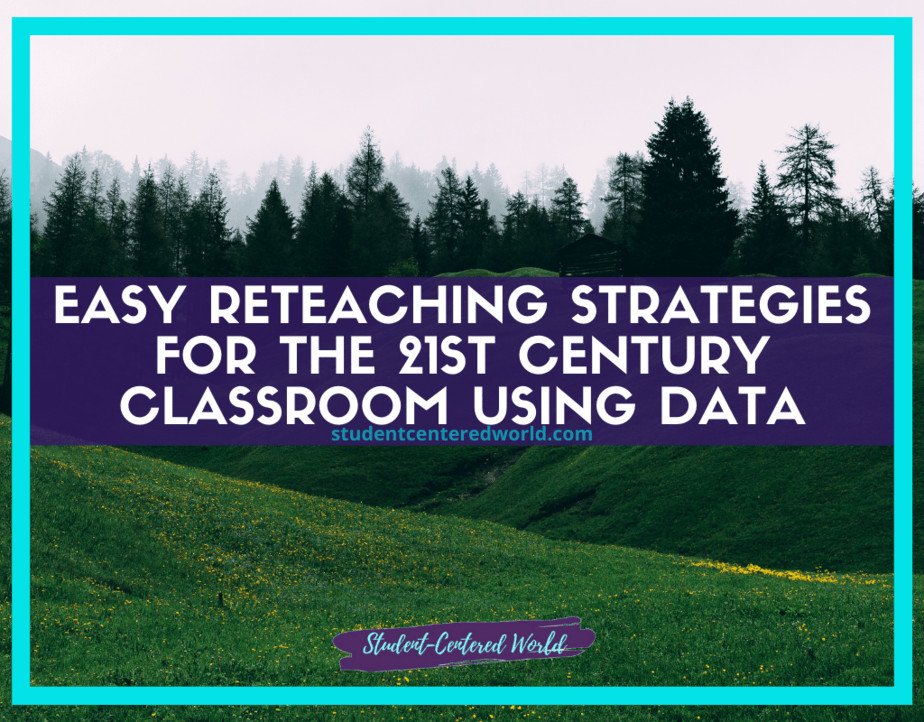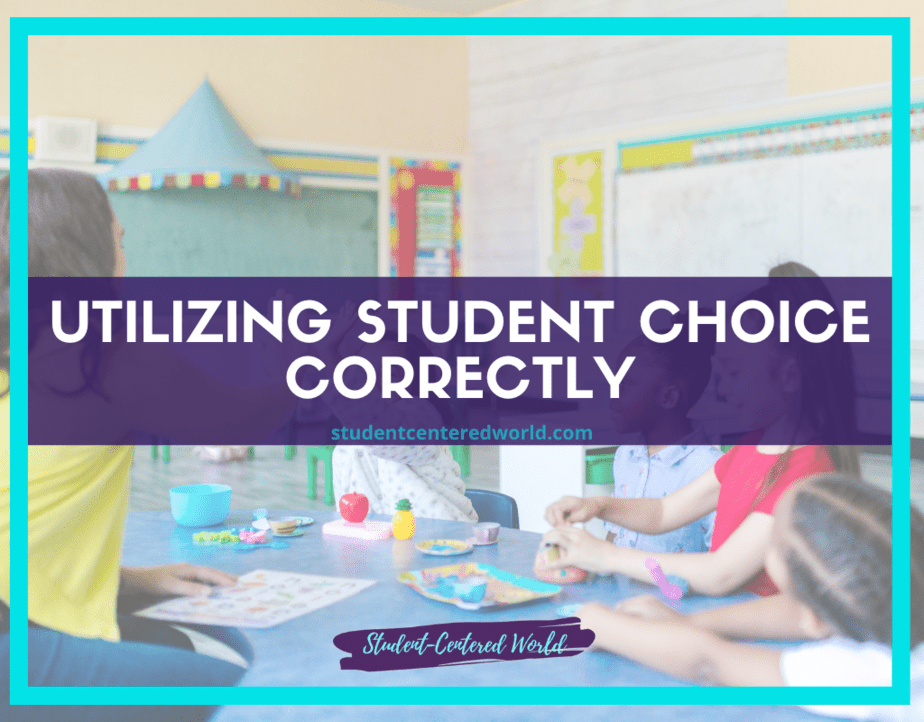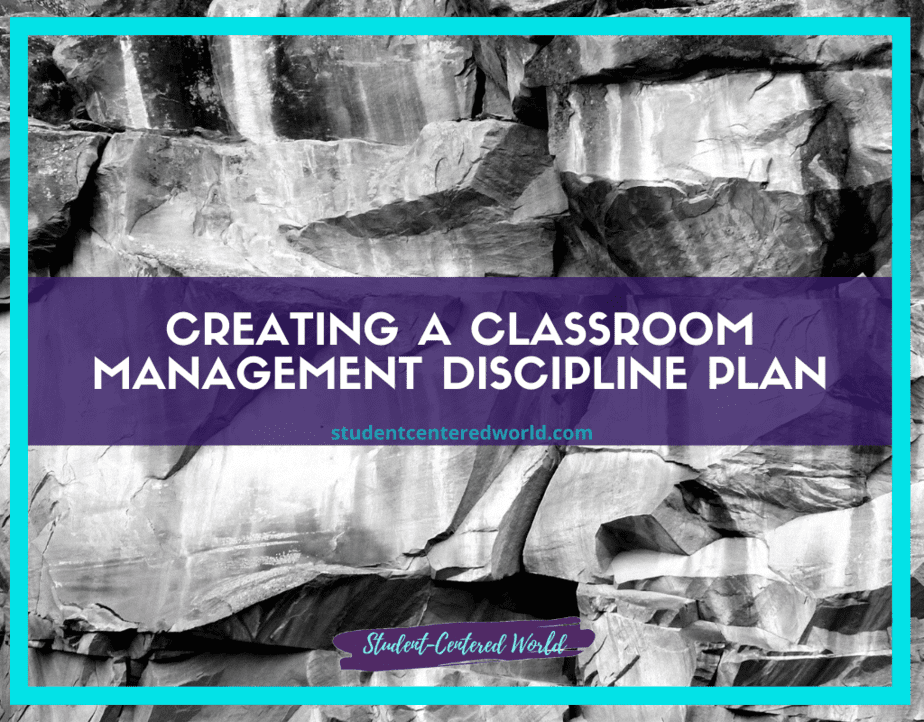How Student-Led Conferences Show Ownership and Empowerment
When it comes to the concept of student-led conferences, I never had a full first-hand experience with one until we moved to the current school district my children attend. As a high school teacher, we never had set parent-teacher conferences like younger grades do. I would, however, have traditional parent-teacher conferences when it was necessary to meet with a parent about a situation with his or her child.
During these parent-teacher conference experiences, I always made a point to speak directly to the student in the room. Whether the student openly or begrudgingly participated, I would make sure we had a dialogue about what was being discussed, their own concerns about whatever situation the meeting was regarding, and their thoughts about the systems and functions of my class.
I also always found it weird that this was apparently an anomaly compared to what other teachers did during these conferences. The students were often surprised that I engaged them in meaningful dialogue as opposed to just having them answer for themselves.
Since I fully believe in a student-centered approach to things, it did not seem odd to me to have them take responsibility for the events in question.
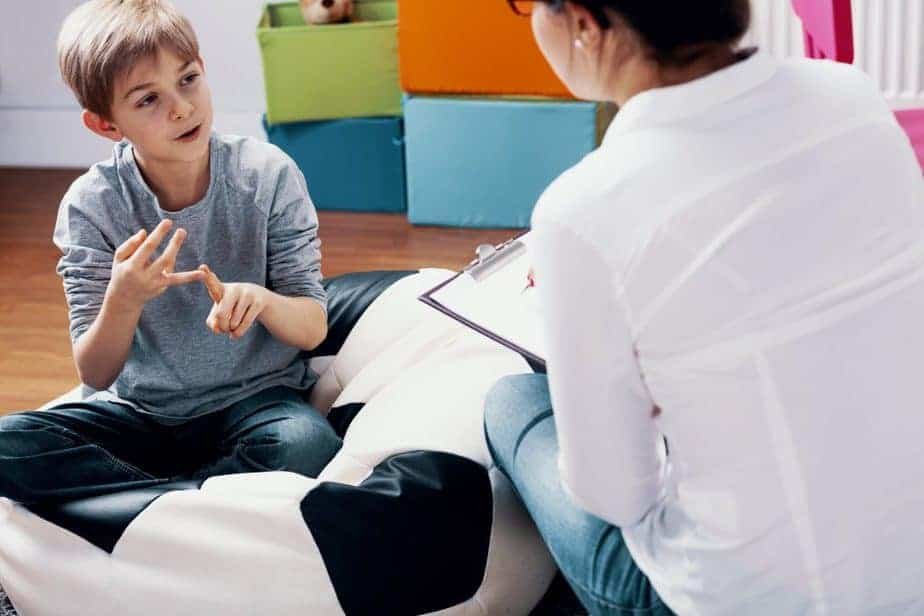
However, when it came to my own children in their elementary classrooms, the system was always to make sure that they were at home with a babysitter, or in some situations, there were seats set up in the hallway outside their classroom when the traditional conferences were to take place.
I understand that this is meant so the parents and teachers can have an open and honest dialogue without interruptions. However, this is a huge disservice to the child, and why student-led conferences are so important to try.
At a very young age, this teaches them that they are not the ones who have control over their actions in the classroom. There are adults in their lives who will have the conversations to help guide them forward.
Although this concept is not a negative one per se, it also takes away the ownership of their learning, achievements, and challenges of the student, no matter how old they are.
Oh my goodness, what a difference with student-led conferences!
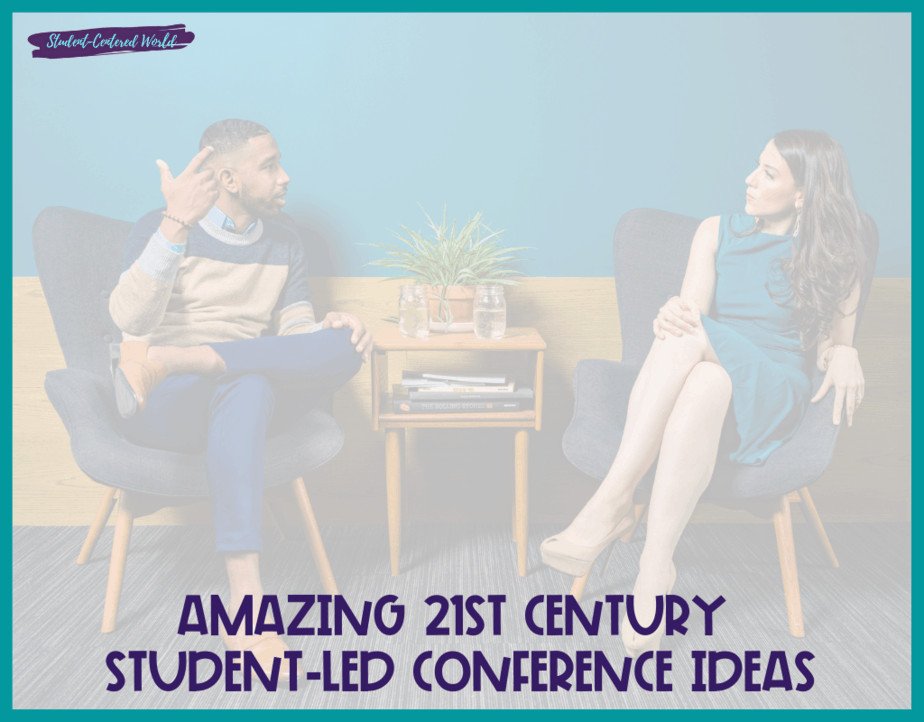
Though they are a bit outside of the norm of what most of us think of when we consider traditional parent-teacher conferences, the benefits of student-led conferences are well worth exploring. It can be a little strange for parents and students to get used to at first, but in the end, it’s really about empowering your kids and giving voice to how much they appreciate their teachers – which is never not going to be a good thing!
When you’re looking at the effect on the student leading a student-led conference, for example, it’s important to remember that your student is learning so much more than just content. They’re also learning the finer points of collaboration and working with others, public speaking, and how to prepare for a presentation.
By taking on this role, they learn:
• To be an effective team member through active listening and self-awareness of their own opinions and how they can work to balance them with others’ viewpoints
• To be an effective presenter through observation of the audience and environment, planned organization of their thoughts into well-defined points, outreach to others for support or collaboration, and appropriate use of tools like visuals (pictures/charts) or stimulus (questions)
• That ideas are not set in stone; it is okay for their idea to evolve and grow when they hear what others have to say
• How to take a leadership role, which can further help them develop compassion for others’ opinions and ideas because they understand the effort that goes into creating an argument.
The benefits of student-led conferences don’t stop there, though. For parents, the benefits include:
• More time to speak one-on-one with your child’s teacher about how they’re really doing without worrying about other students being involved in the discussion. Also, it often inspires teachers to bring up points that otherwise might not have come up or at least to be able to give you more information on what’s happening in the classroom, which you can then use to motivate your students.
• Knowing that your child takes their education seriously enough to want to take an active role in discussions about it with their teacher. And didn’t you always say you wanted them to take responsibility for their own learning? This is exactly the kind of thing that will help you make the point to them that their education is important.
• Seeing how your student handles presenting to an audience (especially you, their parent). If they’re nervous, it’s a really good opportunity for you to talk about how everyone gets nervous, even adults in big jobs like doctors and lawyers; if they run out of steam, it’s a great opportunity for you to encourage them and help them persevere.
• Knowing that your child is able to advocate for themselves effectively in one-on-one situations and what better way than one they’ve prepared for? There are so many ways parents can scaffold this kind of activity so that it really helps their kids improve their skills while feeling successful.
• By having to prepare for an upcoming presentation, your student is able to practice self-advocacy in a low-risk environment because it’s not really about whether you’re right or wrong, just that the topic is presented well. You can also ask them questions about what they plan to include – then have them practice the presentation on you to give them feedback before they’re called up.
• It builds confidence! The ability to effectively present ideas is a very valuable skill for anyone, but especially for kids who are still learning how to advocate for their needs or express their opinions. For example, if your child struggles with writing essays because it’s often hard to explain complex ideas, an opportunity to present them in a different form to someone else may help inspire them to write more; if they struggle with public speaking (throat clearing, etc.), an opportunity like this can be very helpful for building confidence that helps carry into other situations.
The goal here should always be about empowering students and helping them become their own best advocates, and we can do that at any age.
Running a Student-Led Conference
We started with my son who was in kindergarten. They had practice at school before the student-led conferences took place, so they already had an idea of what they were supposed to do.
Parents received a checklist as we walked through the door in case there was something that our child forgot or they needed a reminder of what they were supposed to be doing. The students went and found the desk that had their name on it and systematically went through all of the documents in their folders with us. They showed some of their work, and their progress both through test scores and also a goal sheet that they filled out themselves based on how they felt they were doing in class.
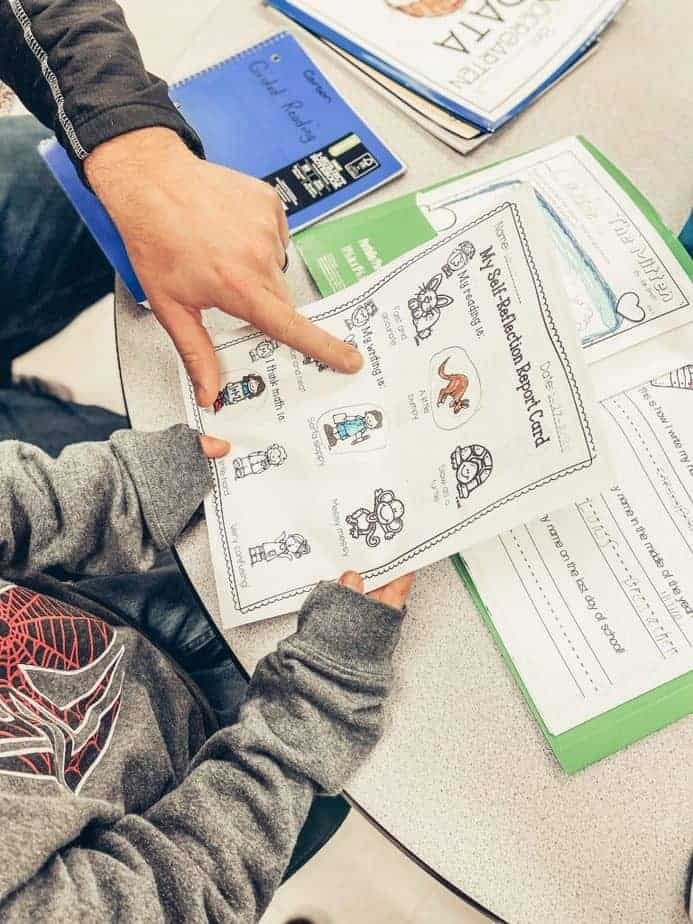
When all of the paper documentation was reviewed, they had the chance to take us to different parts of the room where different activities were set up. We got to see how they practiced sight words and worked on math, iPads were set up to look at Class Dojo and SeeSaw, and then they were able to get out Chromebooks and show us the different programs that they use on there.
My son was so overly excited to show us every little thing that he does during the school day when he is away from home. Not once did a teacher have to intervene to explain something or direct him toward what he needed to be doing.
My son was not an anomaly; every other student in the classroom at that time was doing the exact same things. They barely even acknowledged each other and they were taking their job of showing their families everything very seriously.
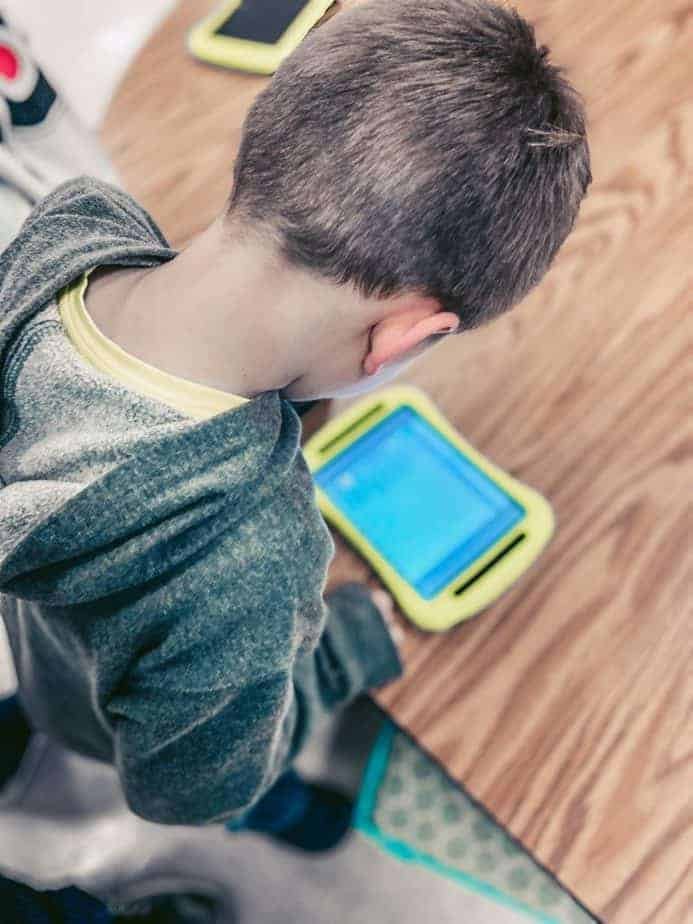
There was an option to sign up for a one-on-one conference with the teacher, but only if you had further questions or concerns that were not answered at that time.
When I got to my third grader’s classroom, it was much of the same. He was able to show us all of the different programs that they take part in throughout the school day for their different subject areas. There was some classwork waiting to show us as well, and even though he wasn’t as openly excited as our kindergartener was, he was able to answer all of our questions and show us exactly what he liked about his class.
His teacher was able to come over and fill in any of the missing pieces and talk a little bit about his progress once she noticed that his jobs for student-led conference night were complete.
After experiencing both types of parent-teacher conferences, from a purely parental standpoint, the student-led conferences were so much more engaging and it was great to see how excited my kids were about what it was they were doing in school.
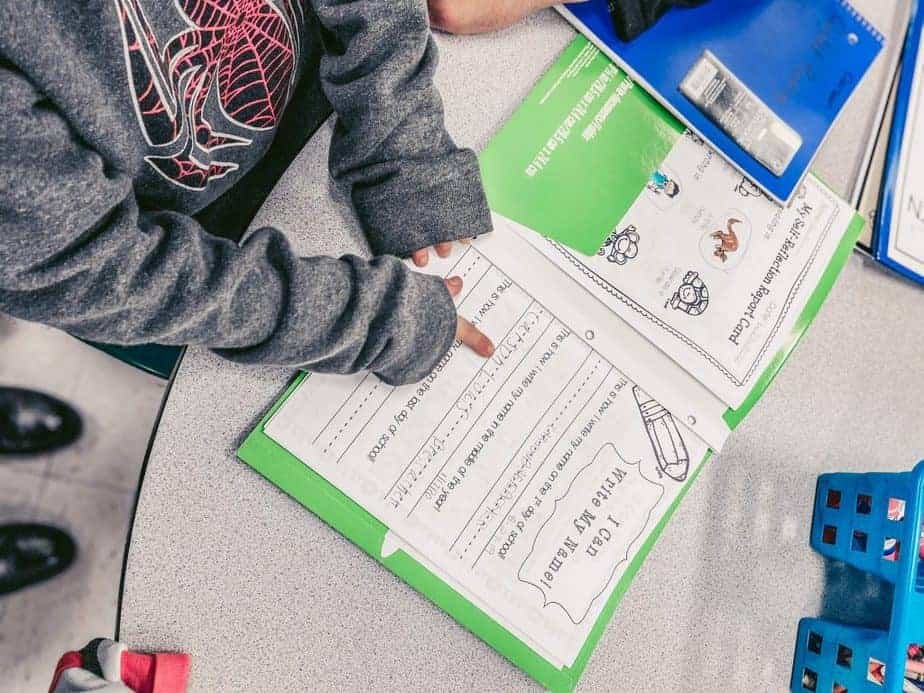
Sure, when they get home they tell me about what happened that day (sort of), but this was hands-on and I could see exactly what they were talking about and they could show me examples of anything that I asked to see.
They also were so proud of themselves to be able to show us how their class was day-to-day.
I know teachers who run student-led conferences do them in different ways. These are just the two personal experiences that I have looked at thus far.
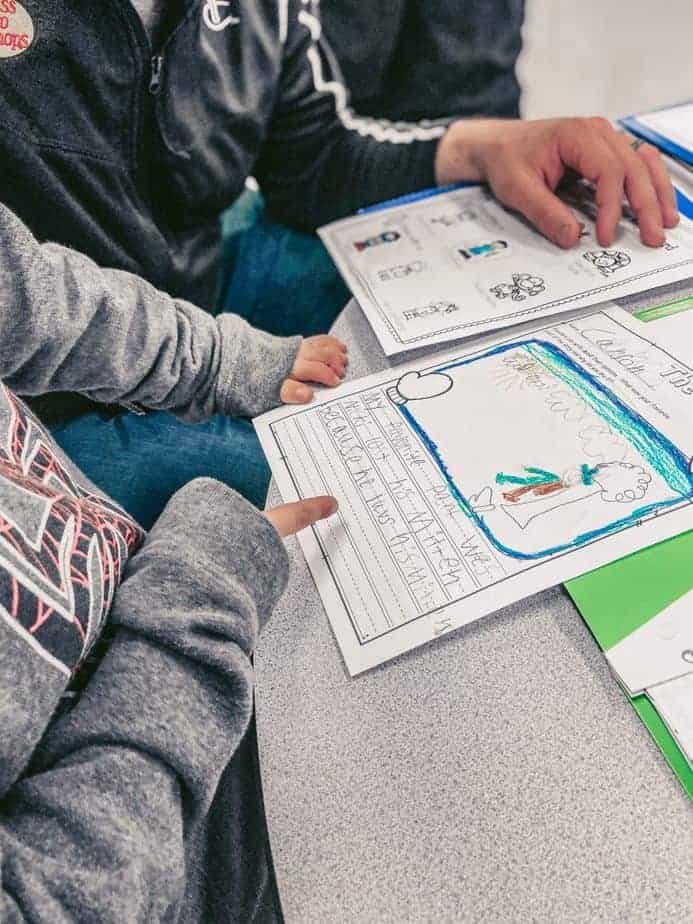
They also were so proud of themselves to be able to show us how their class was day-to-day.
I know teachers who run student-led conferences do them in different ways. These are just the two personal experiences that I have looked at thus far.
Adapting to Your School Expectations
I know in some places it’s mandatory to have one-on-one parent-teacher conference time, but there is nothing against establishing something for your class so you encourage the students to come to the conference. You can create any number of graphic organizers or data spreadsheets to help the students engage in and prepare to be able to discuss what is going on with their parents.
Especially as they get older, that one-on-one time would surely be beneficial and still puts the ownership of the education on the student.
Even if your school or age group does not do traditional parent-teacher conferences, it’s probably not a bad thing or a bad idea to still set up some time where the students can check in with their progress in the class and determine what their strengths and weaknesses are.
They can set goals to move forward throughout the remainder of the school year, and there are certainly ways to incorporate parents into this process as well. It could be as easy as sending the paperwork home and having a parent sign it, or it can be more complex as setting up some type of a video response or another way to show interaction with that parent.
As teachers, we know sometimes it’s difficult to be able to connect with our parents given so many of them have multiple jobs, may live in a different location from their child, etc. Doing this is a great way to connect with them in a time that works for them and shows that their child is responsible and has a vested interest in their own education.
Again, we are preparing our students for their future no matter what age they are.

Student Ownership of Their Learning
Whether they are in kindergarten or about to graduate as a senior, there is nothing wrong with having them take ownership and have open lines of communication between school and home regarding what is going on when they are not in one place or another.
This concept of student-led conferences is going to change the face of education, and I couldn’t possibly promote them more after what I have experienced with them.
Moreover, student-led conferences help in compiling a comprehensive view of your students’ academic skills and personal growth. Utilizing a digital portfolio can enhance the learning process, showcasing student progress through quantitative data and qualitative work samples. Teachers can use editable forms, printables, checklists, and templates to streamline the conference process and ensure all essential information is covered.
Incorporating various resource types like goal sheets, data binders, and classroom forms can support the student-centered learning approach. Students can use sticky notes for quick reminders and personal goals, while teachers can maintain a guide to best practices for running effective student-led conferences.
For younger students, such as those in 1st and 2nd grade, the focus might be on simpler forms of engagement, like showing favorite work and discussing future goals. For older students, including those in middle and high school, the conferences can delve into more detailed academic progress, independent work, and long-term planning.

Using technology like Google Drive for storing digital portfolios or Microsoft Edge for accessing online resources can facilitate a smooth conference process. Students can prepare PowerPoint presentations to display their best work, and parents can view their children’s grades and social studies projects through these digital means.
From the beginning of the school year, teachers can integrate social-emotional learning and classroom management techniques to prepare for these conferences. This preparation can include test prep for struggling students and graphic arts projects for those with individual interests. By the time of the conference, students will have a lot of work to showcase their learning experience.
Parent participation is crucial for the success of these conferences. Open houses and formal meetings can provide additional opportunities for parents to engage with their child’s learning journey. Teachers can also use professional development sessions to stay updated on the latest trends and best practices in student-led conferences.
Why Student-Led Conferences Are Meaningful for All
In conclusion, student-led conferences offer a meaningful way to enhance student engagement, communication skills, and academic progress. They put students in the driver’s seat of their education, fostering a sense of responsibility and leadership that will benefit them throughout their learning experience and beyond. This method not only empowers students to take ownership of their learning but also encourages them to develop critical life skills such as goal setting, self-reflection, and effective communication.
By involving students directly in the conference process, they become active participants in their own academic journey. They learn to articulate their strengths and areas for improvement, set future goals, and understand the importance of continuous self-assessment. This active involvement helps students see their education as a dynamic and ongoing process rather than a series of static outcomes measured solely by grades or report cards.
Additionally, student-led conferences provide a platform for students to showcase their best work and personal achievements. Through the use of digital portfolios and presentations, students can visually and interactively share their learning progress with their family members. This not only reinforces the value of their hard work but also allows parents to gain a deeper and more comprehensive view of their child’s academic and personal development.
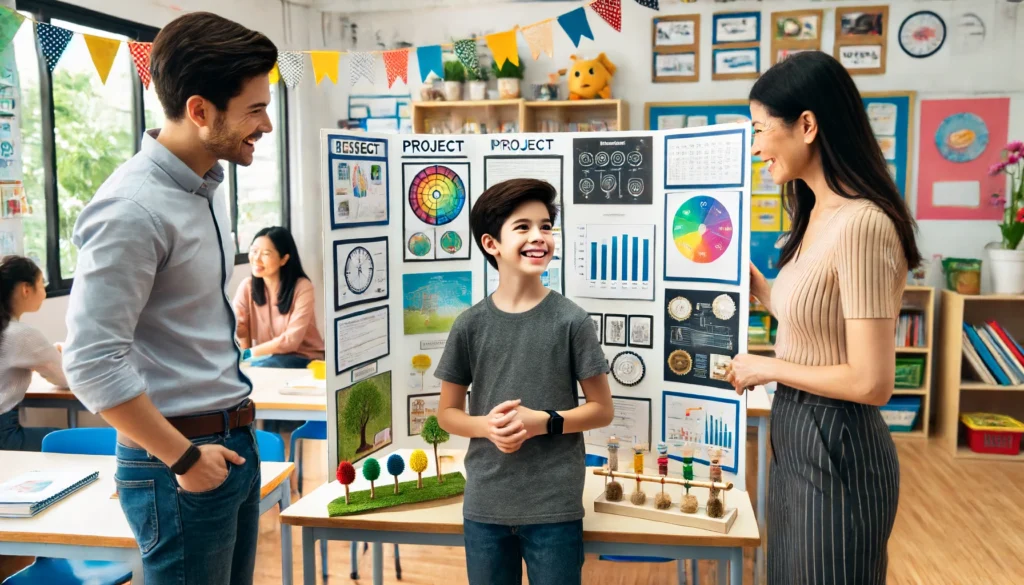
The transition to student-led conferences also supports the implementation of best practices in teaching. Teachers are encouraged to adopt more student-centered approaches, creating an environment where students are motivated to take initiative and be accountable for their learning. This shift promotes a culture of collaboration and mutual respect between students and teachers, ultimately leading to a more engaging and effective learning experience.
For parents, these conferences offer a unique opportunity to engage with their child’s education in a meaningful way. They can see firsthand the progress their child is making, understand their academic and social-emotional learning goals, and provide support and encouragement tailored to their child’s individual needs. This involvement is crucial in building a strong home-school connection, which is essential for the overall success and well-being of the student.
Moreover, the skills gained through student-led conferences—such as public speaking, critical thinking, and self-advocacy—are invaluable in preparing students for future academic and professional endeavors. Whether they are presenting a project in a college classroom, leading a meeting at work, or engaging in community activities, the confidence and competence developed through these conferences will serve them well throughout their lives.
Stop Driving the Teacher Struggle Bus
Are you struggling with student engagement, apathy, or keeping your class on track?
💫💫 There’s hope! 💫💫
If you’re ready to take the first step towards reviving student engagement and transforming your classroom, I invite you to join me for my free workshop “Reversing Student Apathy” designed to equip educators with innovative strategies that work.
This interactive workshop will provide an invaluable opportunity for educators to explore the complex factors contributing to student apathy. By examining underlying causes and discussing broad strategies, participants will be equipped to make meaningful changes in their teaching methods. The sessions are designed to be engaging and collaborative, allowing educators to share experiences and develop a collective approach to overcoming challenges in student engagement.
The workshop will also emphasize the importance of community and network building among educators. Participants will be encouraged to connect with one another, sharing insights and strategies that have been effective in their own classrooms. This network will serve as a continued resource, offering ongoing support as educators implement new tactics to inspire their students.
Highlights of the workshop include:
- A deep dive into the roots of student apathy and its impact on learning.
- General strategies for enhancing classroom dynamics to better engage students.
- The role of educator-student relationships in fostering a more inviting and interactive learning environment.
- Broad discussions on integrating innovative approaches to teaching that resonate with today’s students.
Each educator attending the workshop will gain access to a variety of general resources aimed at enriching the educational experience. Furthermore, an online community will be available for post-workshop engagement, allowing for sustained collaboration and support among peers.
This workshop is an excellent fit for teachers, administrators, and educational professionals who are passionate about reversing the trends of student disengagement and nurturing a more dynamic and responsive educational atmosphere. It presents a unique chance to join forces with like-minded professionals determined to make a significant impact on the academic and personal lives of their students.
As we strive to address these pressing challenges, the workshop offers a platform to unite and empower educators from diverse backgrounds. Registration is essential as spaces are limited, ensuring a focused and productive environment for all participants.
Don’t miss this chance to be part of a pivotal movement in education. Please register today and be part of the solution, helping to reignite enthusiasm and engagement among students and setting them on a path toward a more successful and fulfilling academic experience. Join us as we take proactive steps toward a brighter educational future.
This article was originally published on February 4, 2020




